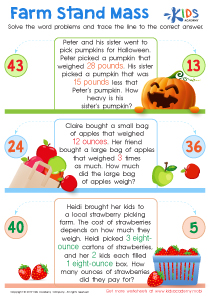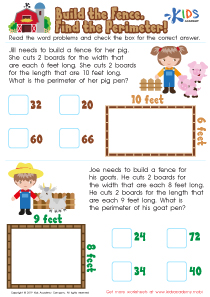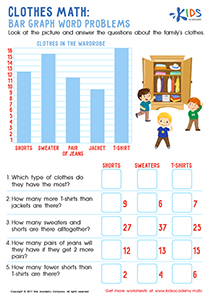Problem-Solving Skills Normal Addition and Subtraction Word Problems Worksheets for Ages 4-6
14 filtered results
-
From - To
Discover our engaging Problem-Solving Skills normal addition and subtraction word problems worksheets designed specifically for children aged 4-6. These worksheets aim to enhance young learners' numeracy skills through enjoyable and relatable math scenarios. Each activity encourages critical thinking and promotes early problem-solving abilities, transforming math learning into a fun experience. With colorful illustrations and simplified contexts, children can easily connect with the tasks, boosting their confidence in solving addition and subtraction word problems. Perfect for home or classroom use, these resources support early math education while laying a strong foundation for future learning. Unlock your child's potential with our expertly crafted worksheets!


Tricky Problems Worksheet: Part 1


Enrichment -2 Step Word Problems Worksheet
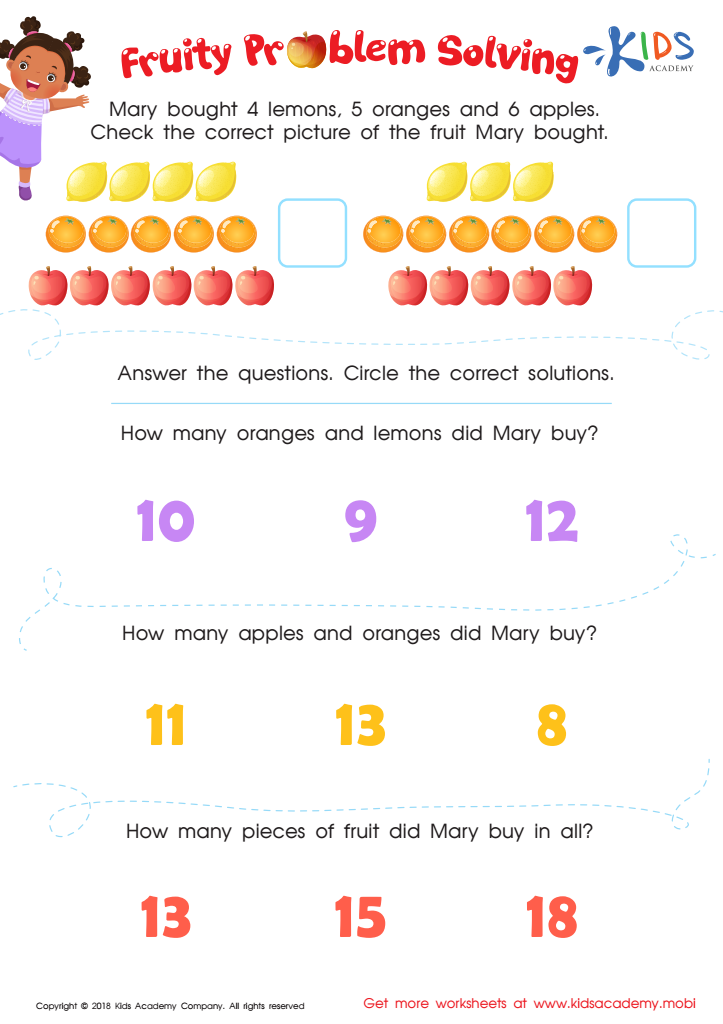

Fruity Problem Solving Worksheet


Tricky Problems Worksheet: Part 2
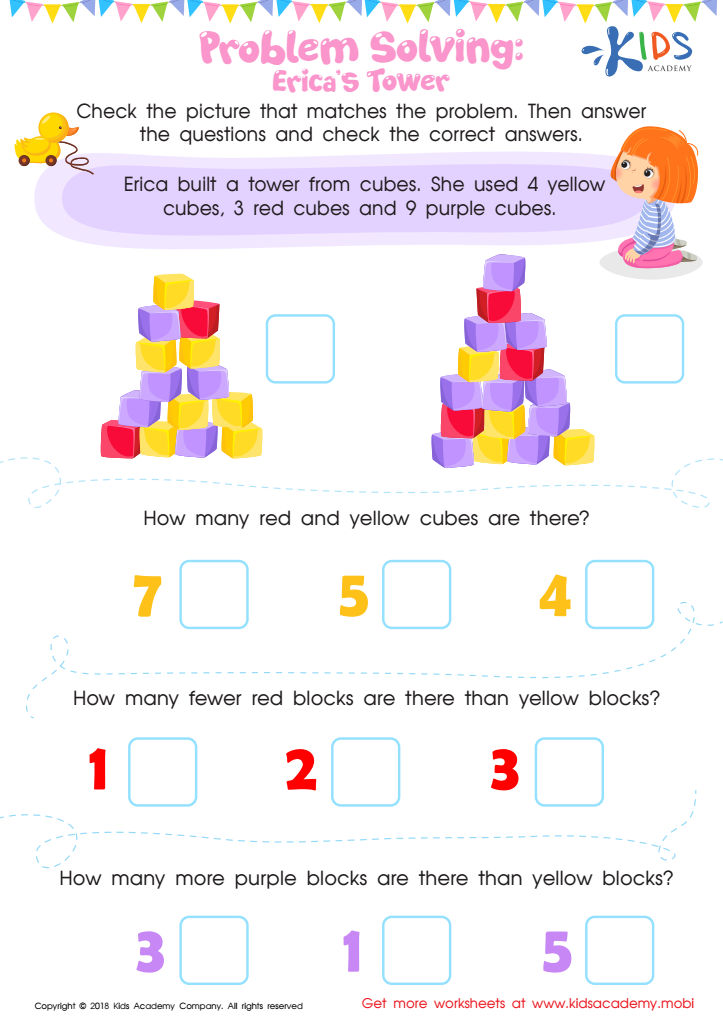

Problem Solving: Erica's Tower Worksheet
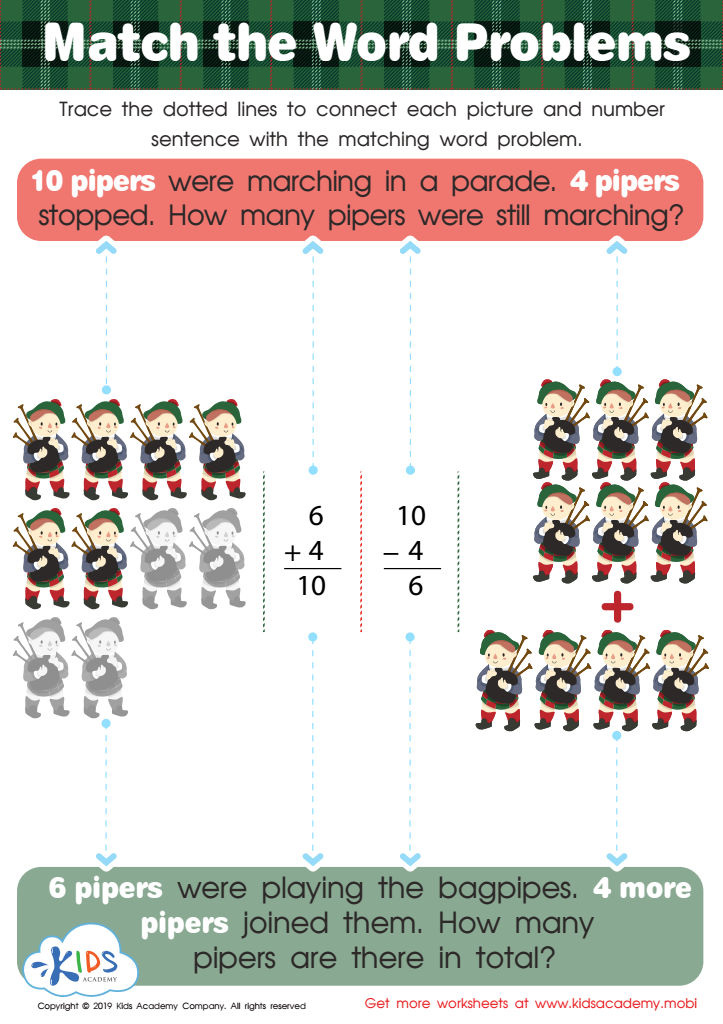

Match the Word Problems Worksheet
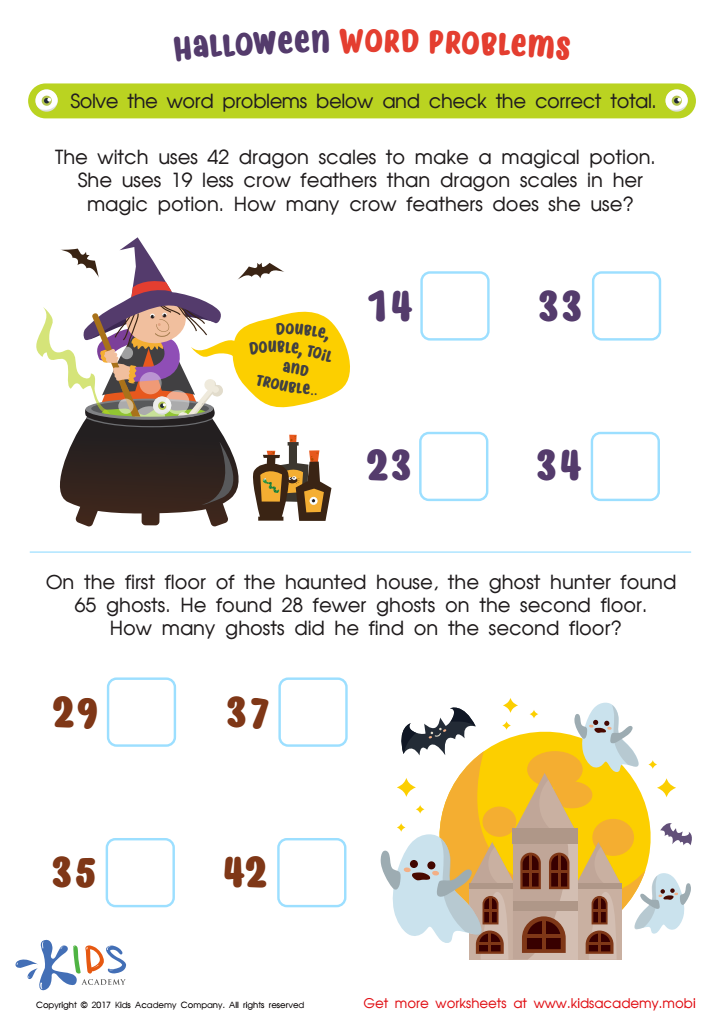

Halloween Word Problems Printable
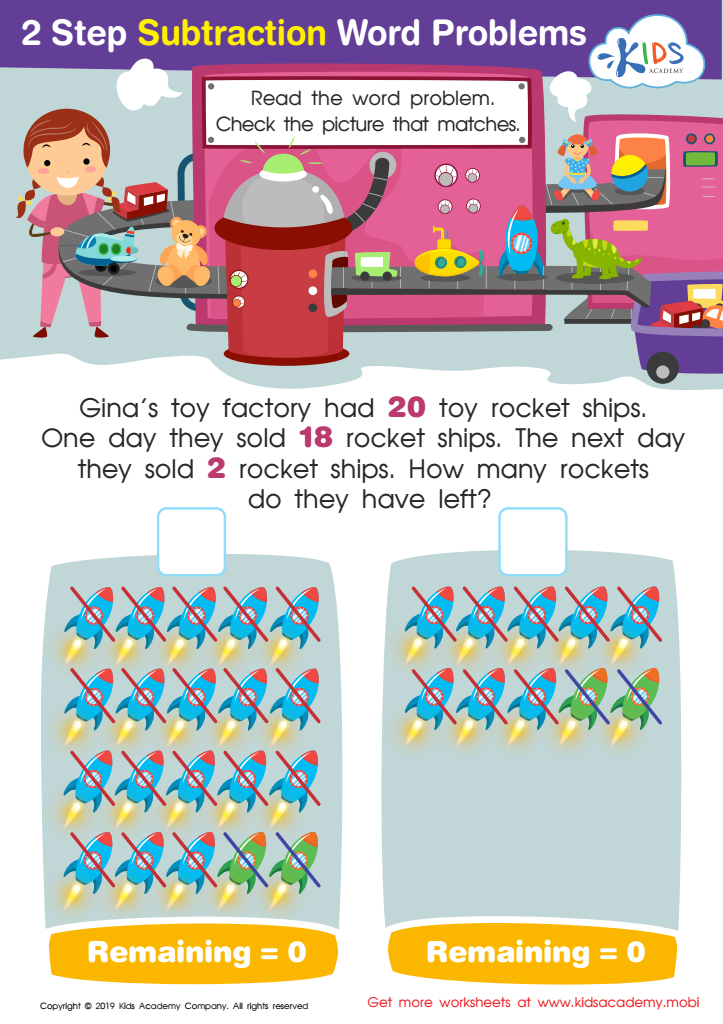

Step Subtraction Word Problems Worksheet
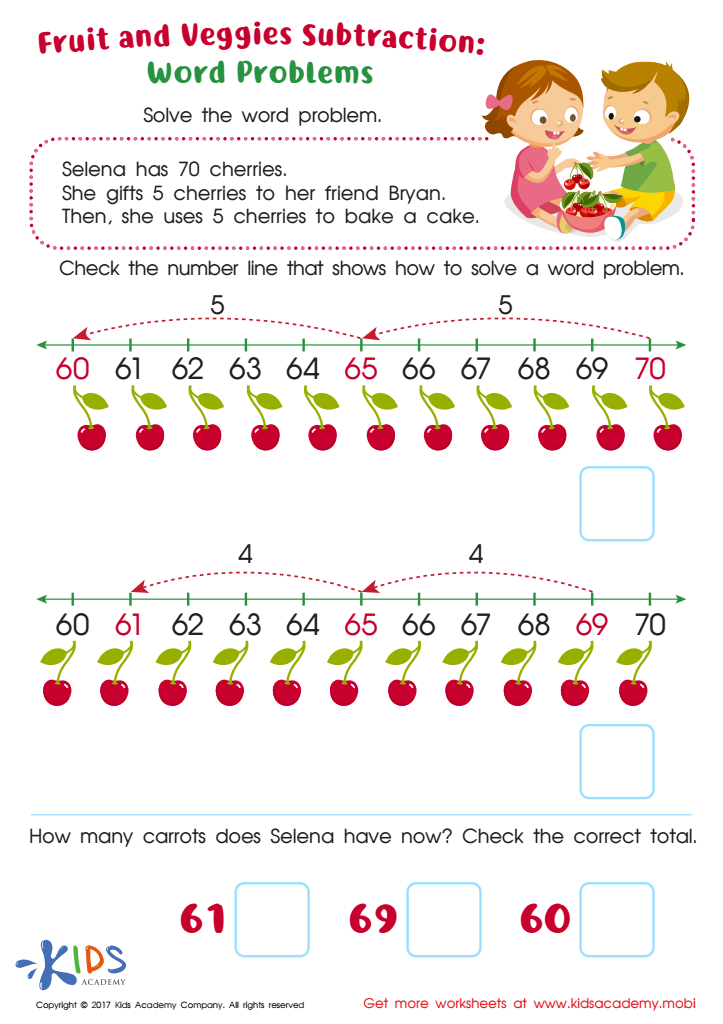

Subtraction Word Problems Free Printable
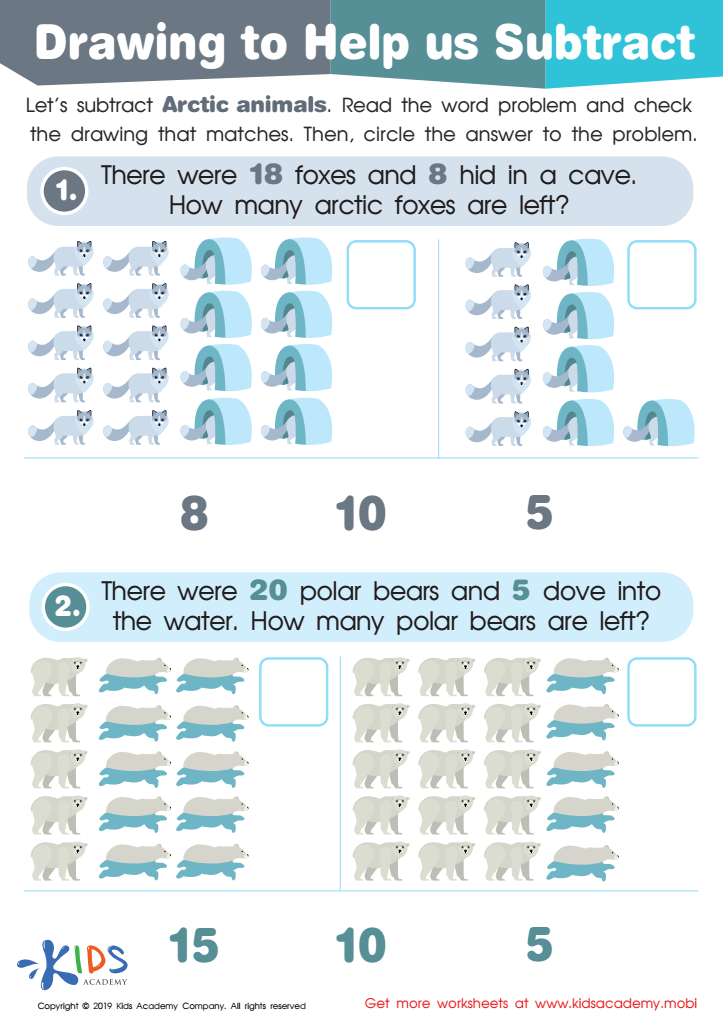

Drawing to Help Us Subtract Worksheet


Solve the Problem: Trick–or–treating Worksheet


Word Problems: Assessment 2 Worksheet


Addition and Subtraction: Word Problems Worksheet
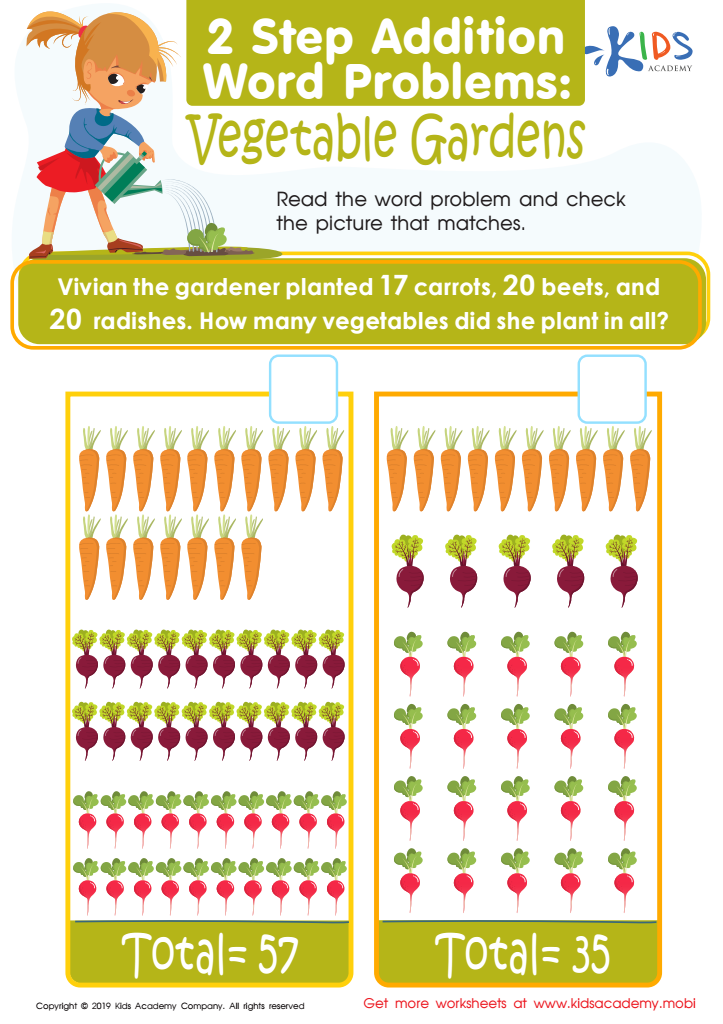

Vegetable Gardens Worksheet
Parents and teachers should prioritize problem-solving skills through normal addition and subtraction word problems for children aged 4-6 for several compelling reasons. First, these foundational math skills form the building blocks for a child's future understanding of mathematics. At this early age, children are naturally curious and eager to explore concepts, making it an ideal time to introduce problem-solving in a fun and engaging way.
Solving word problems encourages critical thinking, as children must interpret scenarios and extract relevant information to find a solution. This early exposure builds not just math skills, but also enhances cognitive abilities, literacy, and language skills, as they learn to comprehend and verbalize mathematical scenarios.
Furthermore, developing these skills fosters perseverance and resilience. Children learn to approach challenges, think logically, and explore multiple strategies to arrive at solutions. This not only boosts their confidence in handling academic tasks but also prepares them for real-world situations where problem-solving is essential.
In sum, nurturing problem-solving skills through word problems in early education enriches children's learning experiences, creating a strong foundation for their analytical abilities and fostering a positive attitude toward mathematics. Parents and teachers play a crucial role in cultivating these essential life skills that extend far beyond the classroom.
 Assign to My Students
Assign to My Students









